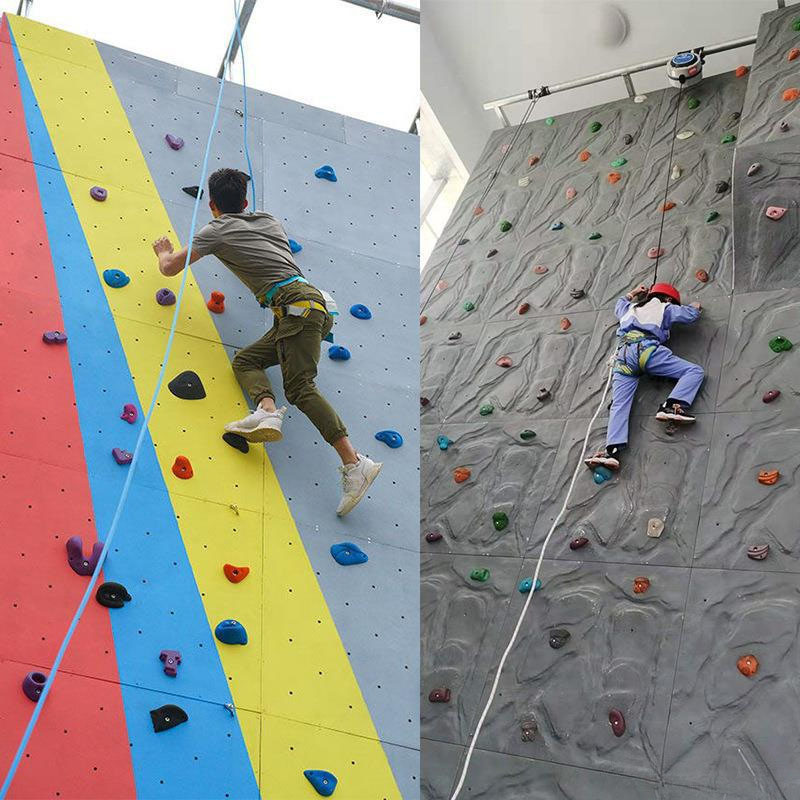A Complete Guide to Indoor Rock Climbing Equipment
Indoor rock climbing has become a popular and accessible activity, offering an exciting combination of physical challenge and mental focus. While the controlled environment of climbing gyms reduces some risks, the importance of using the correct equipment cannot be overstated.
1. Climbing Shoes
Climbing shoes are indispensable for any climbing endeavor. These shoes are uniquely designed with rubber soles to maximize grip on climbing holds, enabling precise and confident movements. Their snug fit ensures that climbers can scale walls with control and efficiency. Climbing gyms and retailers often partner with climbing gear manufacturers to procure high-quality and customizable climbing shoes tailored to their clientele's needs.
Purpose: Climbing shoes are designed for grip and precision. Their snug fit and rubber soles help climbers scale walls with ease and control.
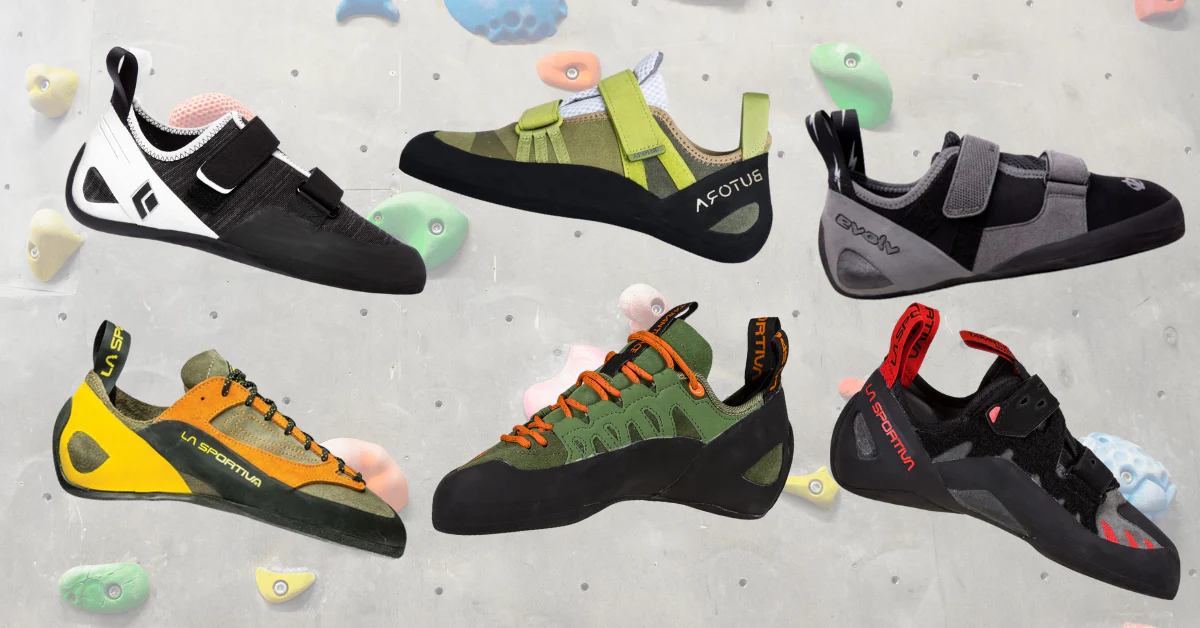
2. Harness
The climbing harness is a critical safety component, allowing climbers to connect securely to the rope system. A well-designed harness offers a balance of comfort and security, with features such as adjustable leg loops and padded waistbands. High-quality harnesses are offered from our climbing gear distributors, we can provide durable and tested options for climbing gyms and retail outlets.
Purpose: A climbing harness secures the climber to the rope system, providing safety and mobility.
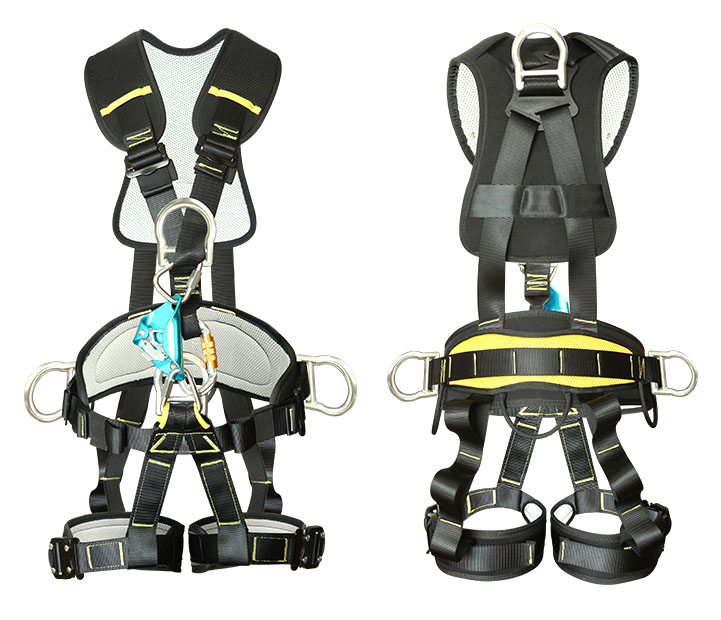
3. Chalk and Chalk Bag
To maintain grip and prevent slipping, climbers rely on chalk to keep their hands dry. Chalk bags are designed for easy accessibility, ensuring that climbers can reapply chalk during their ascent. Our Climbing gear factories offer wholesale options for chalk and chalk bags, often with customizable designs to suit branding needs.
Purpose: Chalk keeps hands dry, improving grip and preventing slips on climbing holds. A chalk bag ensures accessibility during the climb.
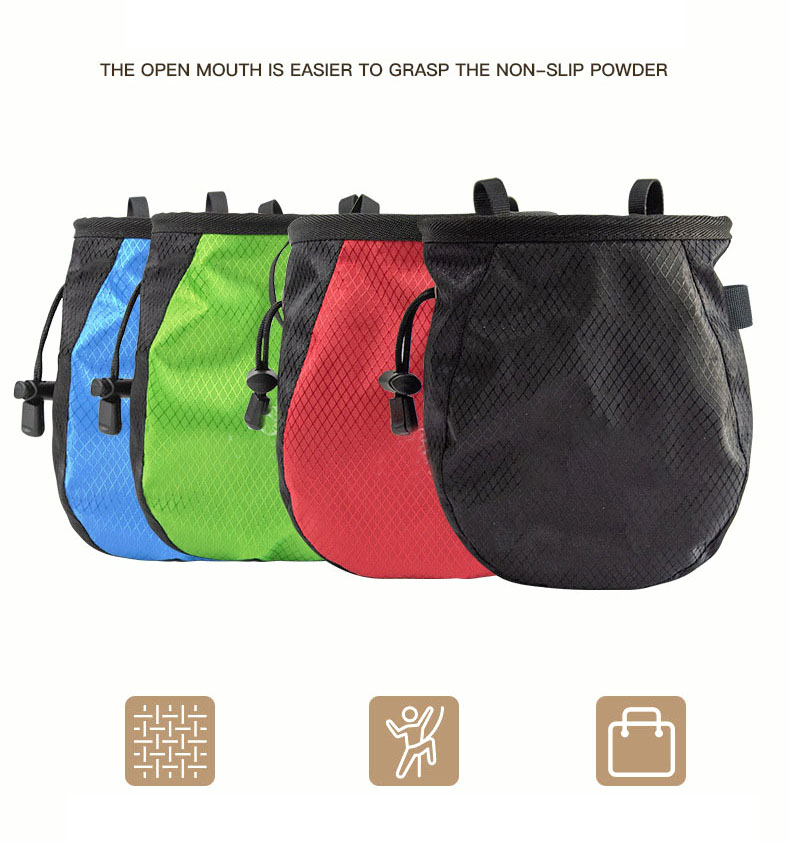
4. Belay Devices
A belay device is an essential tool that allows one climber to manage the rope while another climbs. This device ensures safety by providing friction, enabling the belayer to control the rope effectively and catch falls. Businesses sourcing climbing gear could negotiate with our climbing gear factories for a variety of belay device models that cater to both beginner and advanced climbers.
Purpose: A belay device allows one climber to control the rope while another climbs, ensuring safety by catching falls.
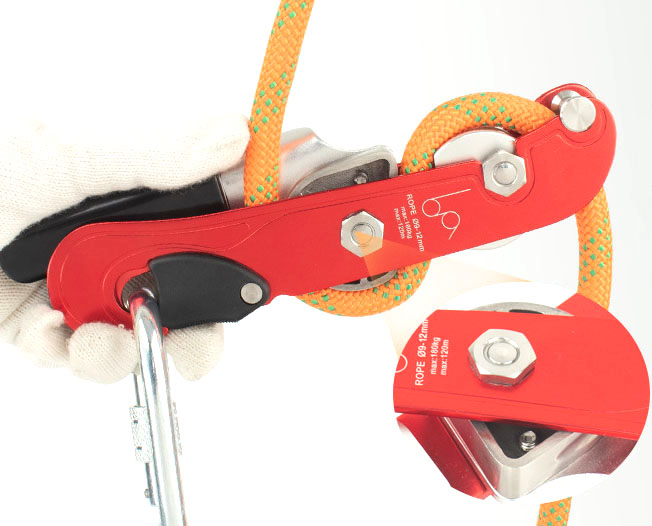
5. Carabiners
Carabiners are versatile metal connectors that serve as vital links in a climber’s safety system. These connectors are used to attach the rope to the belay device, harness, or anchors. Locking and non-locking carabiners are both commonly employed in indoor climbing. Our carabiner manufacturers and distributors offer wholesale options to meet the demands of climbing gyms and retailers, with opportunities for bulk purchases at competitive prices.
Purpose: These metal connectors are vital for securing the rope to the belay device, harness, or anchors.
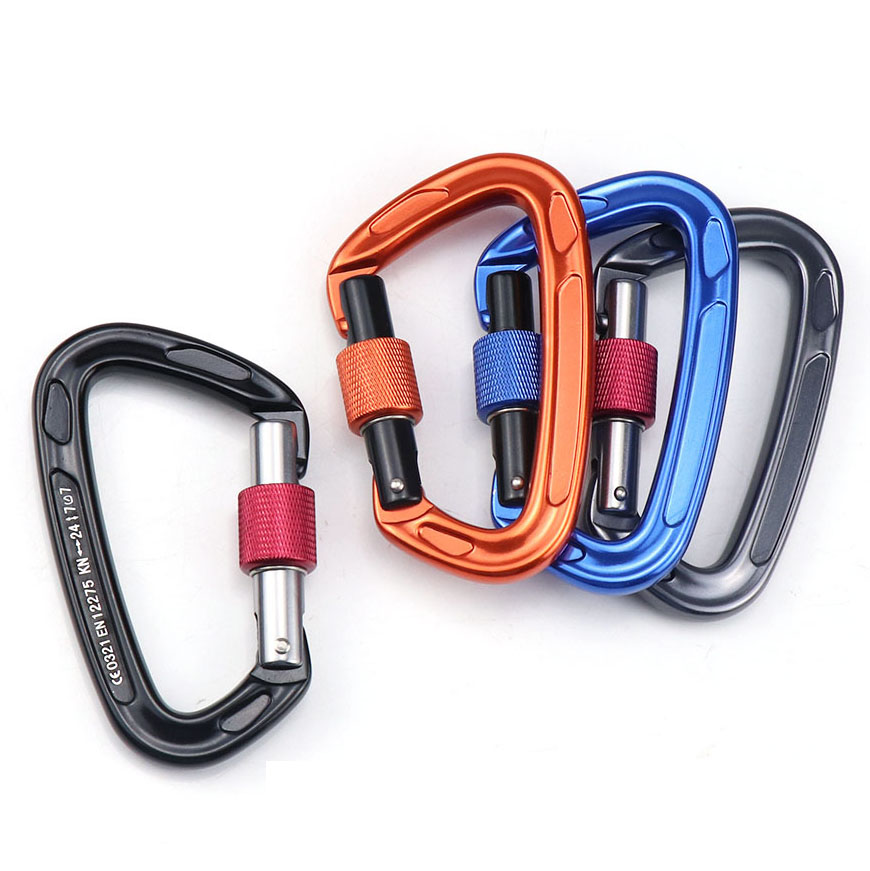
6. Climbing Rope
Though not as frequently required for bouldering in gyms, ropes remain a fundamental element of top-rope and lead climbing setups. Dynamic ropes are often preferred for their ability to absorb the impact of a fall, while static ropes are used for specific applications such as anchors. We are Rope suppliers and distributors capable to offer a variety of ropes, catering to both recreational and professional climbing needs.
Purpose: Although less commonly used in top-rope or lead climbing in gyms, high-quality ropes are essential for safety.
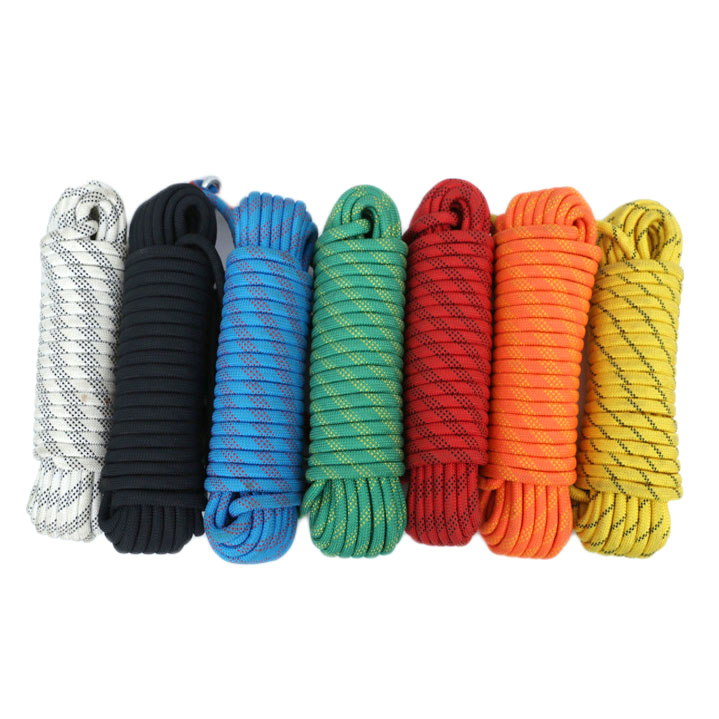
7. Climbing Holds
The artificial holds affixed to indoor climbing walls simulate natural rock surfaces, adding versatility and challenge to climbing routes. These holds come in diverse shapes and sizes, often designed to replicate specific outdoor climbing conditions. Custom holds can be sourced directly from climbing gear factories, enabling climbing gyms to create unique experiences for their clients.
Purpose: These are the grips and footholds attached to climbing walls. They come in various shapes, sizes, and textures to simulate outdoor rock surfaces.
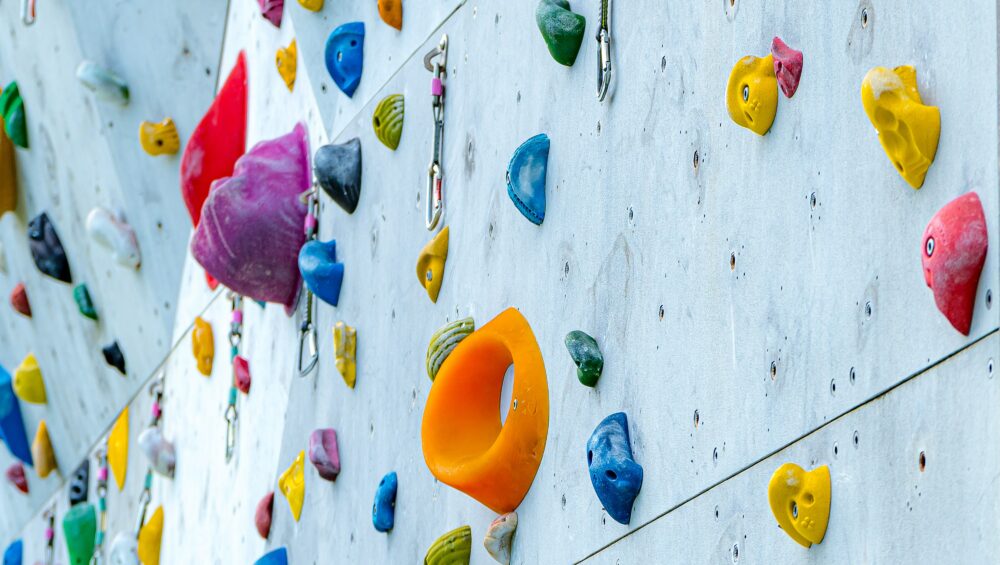
8. Protective Gear
While helmets are not always mandatory for indoor climbing, they are particularly valuable during training or for beginners. Protective gear enhances safety and minimizes the risk of injury. Our Climbing gear distributors channel supply a range of helmets designed for both indoor and outdoor applications, ensuring versatility and reliability.
Purpose: Helmets, though not always required for indoor climbing, provide additional safety for beginners or training exercises.
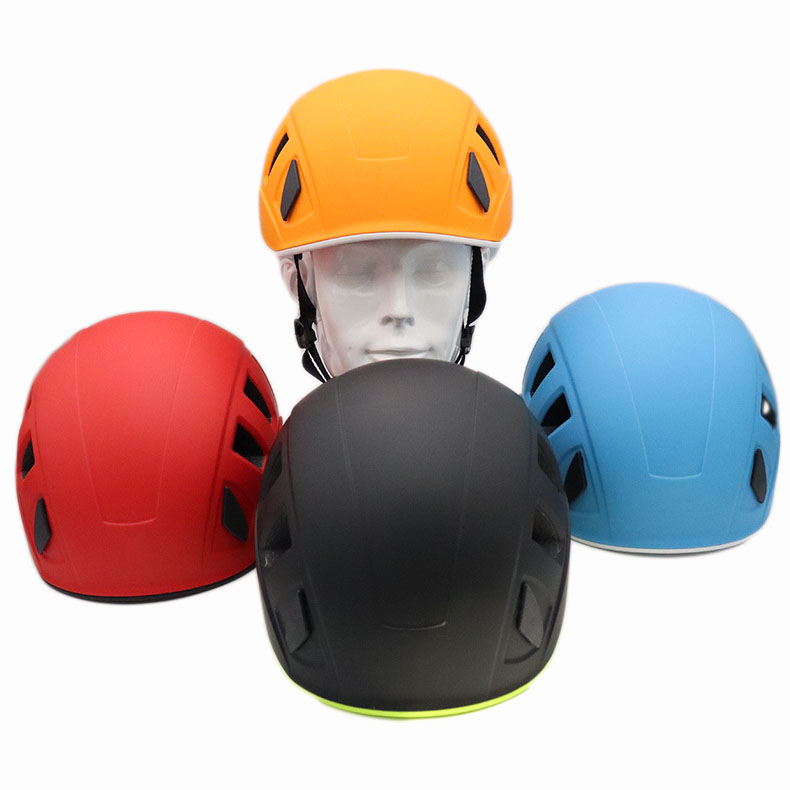
9. Apparel & Accessories
Comfortable and flexible climbing-specific apparel enhances a climber's mobility and reduces restrictions. Additionally, accessories such as brushes for cleaning holds, protective tape for hands, and first-aid kits are essential for a comprehensive climbing setup. These items are readily available from wholesale climbing gear suppliers, ensuring affordability and quality for business buyers.
Purpose: Comfortable, flexible clothing enhances movement and reduces restrictions during climbs.

